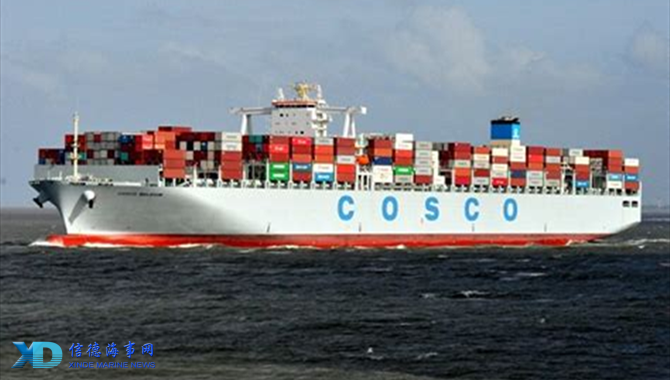
Localization has become a key to Chinese firms' success with more and more Chinese investors establishing companies in countries in Europe.
Hamburg of Germany is an important transition port in Europe. Containers discharged from this port will get shipped to other ports in Europe by smaller vessels. And the goods loaded onto the big ship at this port will go to the Far East and other places in the world.
When a ship of China Ocean Shipping Company (COSCO) arrives at the port of Hamburg, its local employee Thorsten Jagel will monitor the operation of discharging and loading goods.
"Cargo always finds its way. The less the trade may get because of some taxes with the U.S. the more the trade will get somewhere else of course. COSCO will surely get their share. And I guess the trade between China and Europe will still increase," said Jagel.
Now in his eighth year with COSCO, Jagel said the Chinese company offers him job security and stability.
"I guess working for COSCO gives us a very good future. It gives us safety for our employment," said Jagel.
COSCO has subsidiaries in ten European countries. Only about 100 of COSCO's 3,800 Europe-based employees are from China, which makes them a major player in local employment.
However, managing a diverse team is not an easy task. Jagel's supervisor Song Shuqing said respecting his colleague's culture is the key.
"Localizing Chinese companies overseas relies on the support of local employees. And it takes time to merge our cultures together. Our staff members highly recognize company credibility," said Song Shuqing, general manager of the European Marine Operating Center of COSCO SHIPPING Lines (Germany) GmbH.
In 2017, China was the largest partner to the European Union for imports of goods, and the second largest for exports. As about 74 percent of the goods enter or leave Europe by sea, the continent's maritime ports are gateways for European countries doing business with China.
Under the "Belt and Road" Initiative, Chinese companies have taken advantage of the port facilities in Europe and have pursued a deeper integration into the world economy by shaping a diverse and inclusive working environment for their local employees.
The Belt and Road Initiative, proposed by China in 2013, refers to the initiative on the construction of the land-based Silk Road Economic Belt and the sea-based 21st Century Maritime Silk Road. It is aimed at building a trade and infrastructure network connecting Asia with Europe and Africa along ancient trade routes.
Sources:cctvplus
Please Contact Us at:
admin@xindemarine.com


 Ningbo Containerized Freight Index Weekly Commentar
Ningbo Containerized Freight Index Weekly Commentar  Ningbo Containerized Freight Index Weekly Commentar
Ningbo Containerized Freight Index Weekly Commentar  Ningbo Containerized Freight Index Weekly Commentar
Ningbo Containerized Freight Index Weekly Commentar  BIMCO Shipping Number of the Week: Bulker newbuildi
BIMCO Shipping Number of the Week: Bulker newbuildi  Ningbo Containerized Freight Index Weekly Commentar
Ningbo Containerized Freight Index Weekly Commentar  Ningbo Containerized Freight Index Weekly Commentar
Ningbo Containerized Freight Index Weekly Commentar